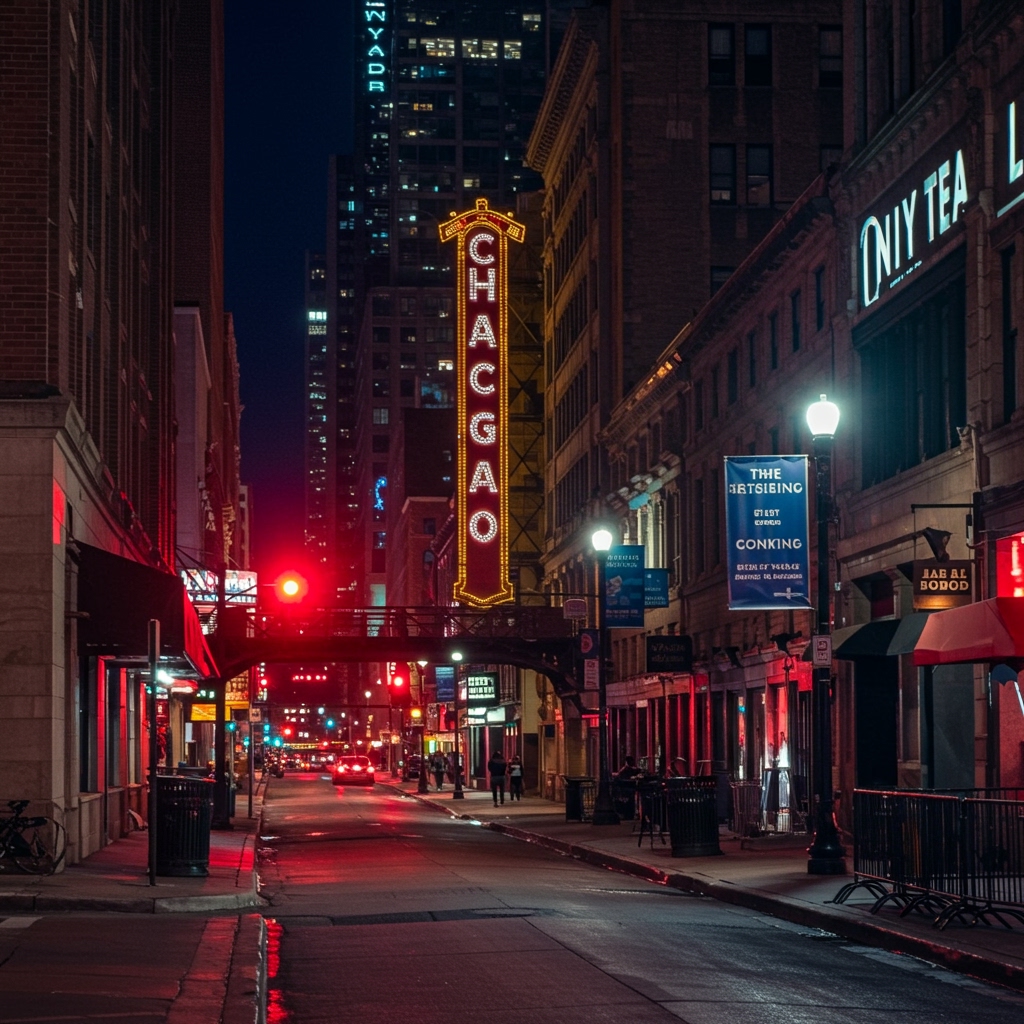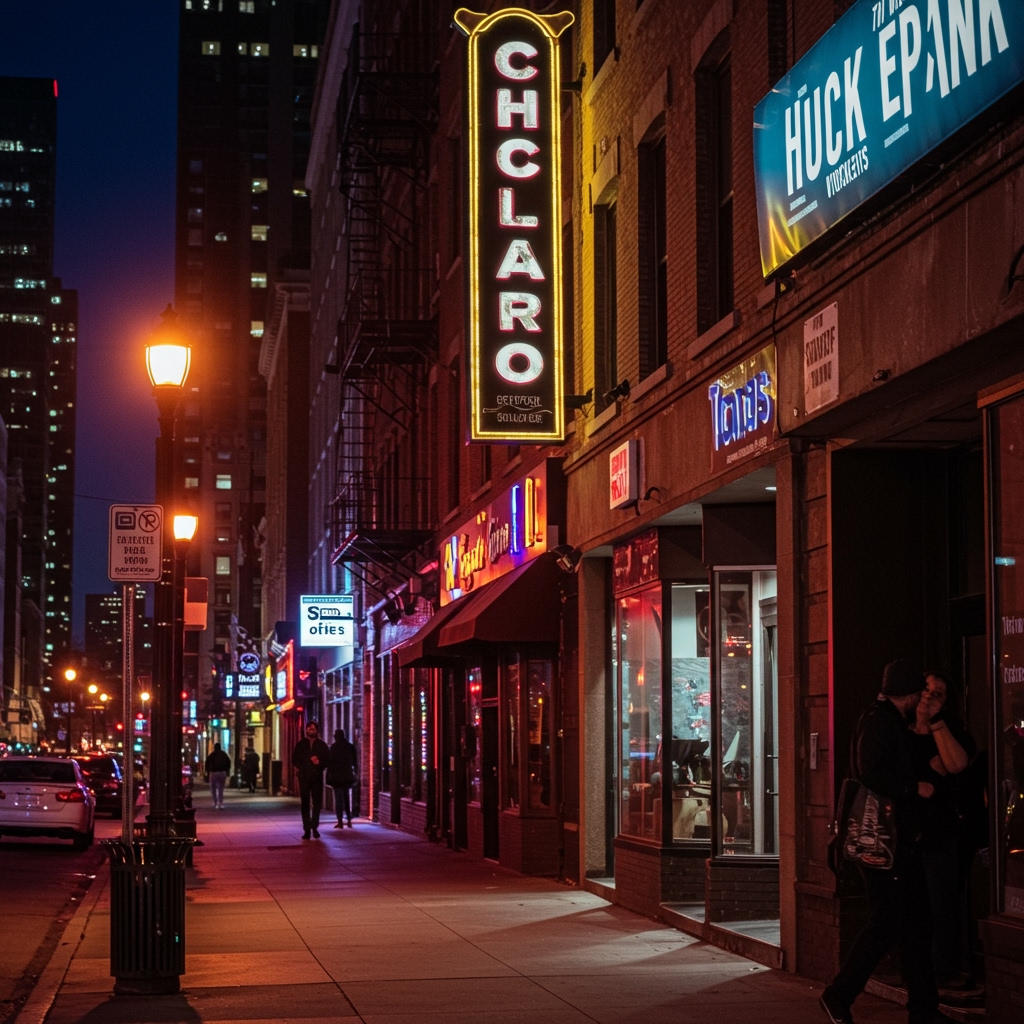Chicago, IL – The future of Wicker Park’s vibrant late-night scene hangs in the balance as the Chicago City Council prepares for a crucial vote. Scheduled for May 29, 2025, the council will consider the controversial Wicker Park Late-Night Ordinance. This proposed legislation, recently advanced with approval from the Committee on License and Consumer Protection, aims to implement significant operational changes for businesses operating late hours within specific boundaries of the neighborhood. The ordinance targets establishments located within the 1st and 32nd Wards, proposing measures that could mandate earlier closing times than currently permitted and require the implementation of stricter security measures. The debate surrounding this ordinance has ignited a heated conflict between residents seeking peace and quiet and business owners concerned about their livelihoods.
Origins and Rationale
The push for the Wicker Park Late-Night Ordinance stems primarily from escalating concerns regarding quality of life and public safety in the bustling entertainment district. Supporters, including prominent advocate Alderman John Miller, argue that the measures outlined in the ordinance are not only necessary but overdue. According to proponents, the concentration of late-night venues has led to increased noise complaints, public disturbances, litter, and a rise in crime-related incidents, particularly during late weekend hours. Alderman Miller and others contend that the current regulatory framework is insufficient to manage the impact of intense nightlife activity on the surrounding residential community. The proposed rules, they assert, are a balanced approach designed to mitigate these negative externalities, ensuring that residents can enjoy their neighborhood without undue disruption while still allowing businesses to operate, albeit under tighter controls. The goal, proponents state, is to restore a sense of order and safety that they feel has eroded as the area’s popularity as a nightlife destination has grown.
Business Opposition Mounts
Standing firmly against the proposed ordinance is the Wicker Park Entertainment Association (WPEA). This influential group, representing over 50 local businesses including bars, restaurants, and music venues, has launched an intense lobbying campaign to defeat the measure. The WPEA argues vehemently that the ordinance’s requirements would inflict irreversible economic damage on the neighborhood’s business ecosystem. They contend that earlier closing times would drastically cut revenue, making it difficult for many establishments to remain profitable. Furthermore, the added costs associated with implementing stricter security measures, such as hiring additional personnel or installing expensive surveillance equipment, would place an unsustainable financial burden on businesses already operating on thin margins. The WPEA warns that these combined pressures could lead to widespread job losses within the service industry and fundamentally alter the character of Wicker Park as a vibrant, dynamic destination. They argue that the ordinance punishes responsible businesses for the actions of a few individuals and that existing laws and police enforcement should be sufficient to handle public safety issues.
Path to the Vote
The journey of the Wicker Park Late-Night Ordinance to the full City Council vote on May 29, 2025, involved navigating the city’s legislative process. The ordinance recently cleared a significant hurdle by receiving approval from the Committee on License and Consumer Protection. The committee’s favorable recommendation sends the proposal to the full 50-member council for final deliberation and a vote. While the committee’s approval indicates some level of support among council members familiar with licensing and business issues, it does not guarantee passage by the full council. The committee discussions reportedly highlighted the stark divide between resident concerns and business fears, setting the stage for a potentially contentious debate on the council floor. Both proponents and opponents are expected to present their cases forcefully in the coming days, attempting to sway undecided council members before the crucial late May vote. The committee stage served as a forum to air grievances and propose amendments, though the version advancing to the council maintains the core components of earlier closing times and enhanced security requirements.
Economic and Social Implications
The debate over the ordinance is fundamentally a clash between economic interests and social well-being. The WPEA’s core message centers on the potential for significant financial hardship. They project declines in sales revenue, particularly from late-night patrons, which are critical for the viability of many establishments in the area. The specter of widespread closures and subsequent job losses is a primary concern, painting a picture of a less economically vibrant Wicker Park. Conversely, proponents emphasize the social costs of the current situation. Residents describe feeling unsafe or disturbed in their own neighborhood, unable to enjoy peace and quiet due to noise, late-night crowds, and associated issues. The proposed ordinance, in their view, is an investment in the community’s livability, arguing that a balanced approach that prioritizes resident well-being will ultimately benefit the neighborhood long-term, potentially attracting more residents and day-time businesses. The challenge for the Chicago City Council will be to weigh these competing, deeply felt interests when casting their votes on May 29, 2025.
Security and Enforcement
Beyond closing times, the requirement for stricter security measures adds another layer to the debate. While the specifics may be subject to interpretation or future regulation, these measures could include mandated security personnel staffing levels, installation of surveillance cameras, enhanced lighting, or requirements for ID scanning systems to verify age and potentially track problematic patrons. For businesses, these represent additional operating costs that could be substantial. For proponents, these measures are seen as essential tools to deter crime, manage crowds, and ensure compliance with regulations, thereby improving public safety. The WPEA argues that many businesses already employ security personnel and that mandating stricter, potentially uniform standards might be unnecessary or disproportionately burdensome, especially for smaller establishments. They suggest that improved police presence and enforcement of existing laws would be a more effective solution than placing the burden and cost squarely on businesses. The feasibility and effectiveness of implementing and enforcing these stricter security measures across numerous venues remain a key point of discussion.
Conclusion
As the City Council vote on May 29, 2025, approaches, the Wicker Park Late-Night Ordinance stands as a focal point of tension in the neighborhood. With the Wicker Park Entertainment Association intensifying its lobbying efforts, citing the dire potential for irreversible economic damage and job losses among its over 50 local businesses, and supporters like Alderman John Miller highlighting the urgent need to address escalating quality of life and public safety issues within the 1st and 32nd Wards, the stakes are high. The decision facing the council will not only determine the operational future for late-night venues but could also redefine the social and economic landscape of one of Chicago’s most dynamic neighborhoods. The outcome on May 29, 2025, will be closely watched by businesses, residents, and other Chicago communities grappling with similar challenges posed by integrating vibrant nightlife within residential areas.















